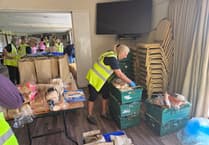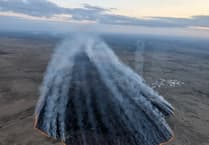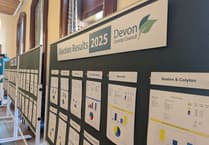DEVON and Somerset Trading Standards Service is warning residents to be vigilant against scammers claiming to be from a council or other public authority.
The warning follows a series of complaints to the service from residents who have received scam calls.
Callers claiming to be from local authorities, including Devon County Council and Somerset County Council, have attempted to gain the confidence of their victims, their personal details or money.
Bogus callers have variously offered to help with a compensation claim following an accident, asked for money to excavate the ground where utility supplies run and have even offered to resurface drives with ‘left over’ materials for a fee. Other callers have asked for payment or card details, asked for money regarding a council tax shortfall, offering to refund an overpayment and offered a reduction in business rates.
There have also been instances of fake calls and emails from HMRC inviting residents to give details in order to receive a tax rebate, or asking for payment of a tax shortfall.
As each scam is publicised and residents become more aware, the scammers come up with new ways to reel victims in.
Councillor Roger Croad, Devon County Council’s Cabinet Member with responsibility for Trading Standards, said: ‘Scammers claiming to be from your local council will often claim to already have information about you, but don’t be fooled.
‘One tactic the criminals use is to suggest they know more than they actually do. In some cases these scammers will claim to have information from sources like the NHS or your county council, in order to give the impression of legitimacy, but this is always entirely bogus.
‘If you believe a scammer has tried to contact you, always report it. The more we can warn about scams, and the more information we have on the scammers, the more effective our fight against them becomes.’
Councillor David Hall, Somerset County Council’s Deputy Leader responsible for Trading Standards, said: ‘Operatives from Somerset and Devon County Council Highways would never contact members of the public out of the blue and ask for money, or offer to conduct private work on people’s properties and neither would officers from our partner councils.
‘Even if you don’t fall for the initial scam, any information you give could be used by a con artist to tailor their next approach. Where a caller may be legitimate, but you aren’t certain about them, it is best to err on the side of caution.
‘If you believe a scammer has tried to contact you, always report it.’




Comments
This article has no comments yet. Be the first to leave a comment.